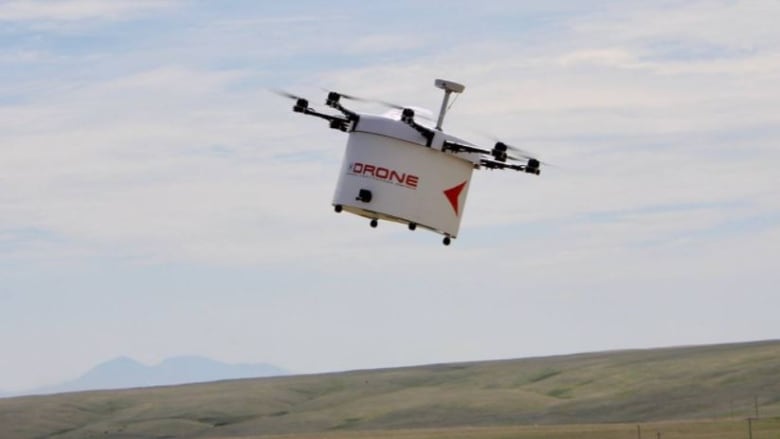Remote northern Ontario First Nation to begin getting drone delivery
Chief of Moose Cree hopes this will help reduce cost of food in the community

Patricia Faries is hoping drones will help reduce the price of goods in her community of Moose Cree First Nation.
The chief of the remote community on the island of Moose Factory in northern Ontario says the cost of living is highbecause of the extra effort it take to transport goods there.
In the winter, residents use an ice road to go back and forth to nearby Moosonee, but in the warmer months items must be transported by boat or aircraft.
Over the next few weeks a technology company called Drone Delivery Canada plans to start test flights using unmanned aerial vehicles between the mainland and the island.
Then in early November the plan is to have those drones begin dropping food, medical supplies, general goods and mail atdrop off zones on the island, says company CEO Tony Di Benedetto.
The drones will be able to travel between three to 10 kilometres carrying up to ten pounds, but Di Benedetto says they hope to increase that weight in the near future.
"What we're looking to build is a railway in the sky."
Di Benedetto believes this technology will benefit real people with real issues.
"Rather than trying to get a pizza a couple minutes quicker we're actually helping a big group of Canadians live better lives," Di Benedetto says.
"To get from one community to another they physically have to cross a river with a boat and it's expensive."
"We went across the river six, seven times in a day and a half that we were there, and we spent $300 to do this. So we're talking dollars versus hundreds of dollars, if not thousands of dollars to move goods," Di Benedetto says.
Faries is excited about what this will mean for the residents of Moose Cree and their future.
"The water that we're on, which is the Moose River ... it's always changing so you know, we see this as an opportunity to really bridge all of those natural phenomenon ... to make sure that we always have our supplies and our basic needs provided."
With files from Jackie McKay and Angela Gemmill












_(720p).jpg)


 OFFICIAL HD MUSIC VIDEO.jpg)
.jpg)



























































































